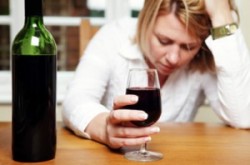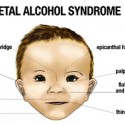Alcohol Dependency Treatment
Alcohol dependency is characterized by a physical need to use alcohol in order to function or feel good. For the patient, there are two primary forms of alcohol dependency which include medical treatment and psychological treatment. Both methods of treatment must be used in order to effectively overcome alcohol dependency and provide the greatest possible chance of staying sober.
Medical Treatment for Alcohol Dependence
The first phases of alcohol dependency treatment focus on detox and ridding the body of harmful toxins that cause withdrawals. Treatment of alcohol withdrawal in a medical environment may include various medications that control cravings, curb cravings or otherwise help speed the detoxification process along so that the patient can move on to psychiatric treatment for the alcohol dependence.
Some of the medications that are commonly used in alcohol dependency treatment include:
- Diazepam which may be prescribed for the first weeks or even months following the initial stage of abstinence from drinking to curb anxiety and promote better sleep
- Disulfiram which is also known as Antabuse and is commonly prescribed as early as 24 hours following the patient’s last drink and is used to stop the “fun” effects of alcohol. Patients who take this medication will actually get very sick if they drink alcohol while taking the drug.
- Antidepressants which are used to stop any major depressive symptoms that can come during the detoxification period of immediately following this period of treatment. These include a range of drugs such as Lithium which have been found to help reduce depression.
Psychiatric Treatment for Alcohol Dependence

Alcohol dependency treatment can help you overcome your addiction!
Once medical treatment is under control and the patient at least is no longer suffering from extreme withdrawal symptoms as a result of his or her alcoholism, psychiatric treatment can commence. During this phase of treatment, a wide range of psychiatric and psychosocial treatment methods may be used to help retrain the patient to have fun, trust in others, build relationships, interact socially and ultimately to heal from alcohol addiction.
Social support groups such as Alcoholics Anonymous are a common ground during this phase of treatment and for many addicts, the interaction in these groups will continue for many years to come. AA represents a safe place where alcoholics (and recovering alcoholics) can come together to get help and support for a better recovery.
Psychiatric treatment may also include behavioral therapy which focuses on teaching the recovering alcoholic now to reduce anxiety, distress and take part in life without alcohol. Changing behaviors takes time but the end result is often the ability for the addict to have great self-control, to enjoy life and to remain abstinent from alcohol for a very long period of time. Sobriety in a clean and active lifestyle is emphasized along the way.
Resources:
